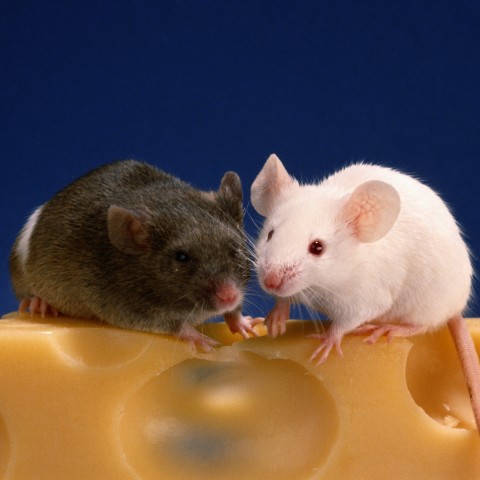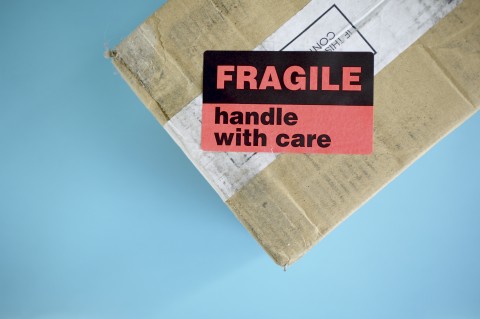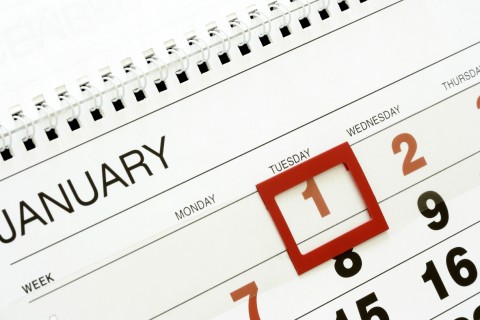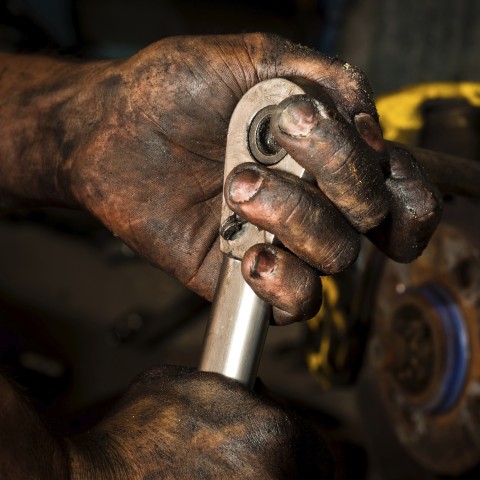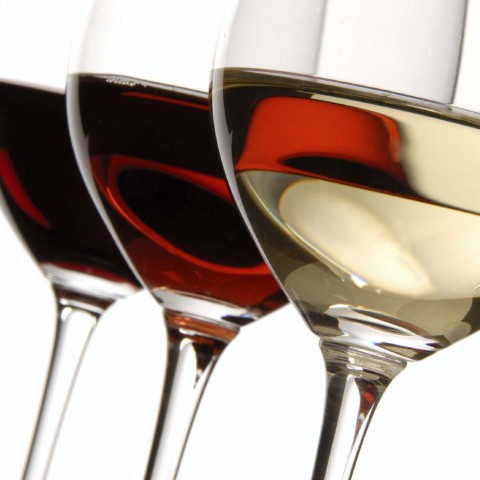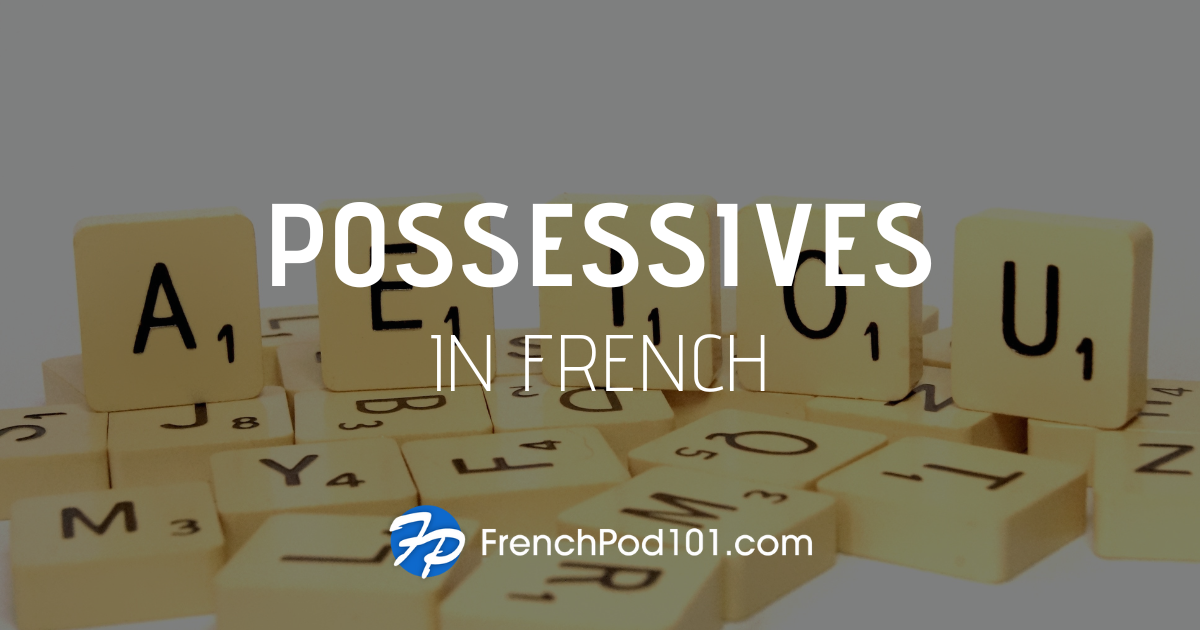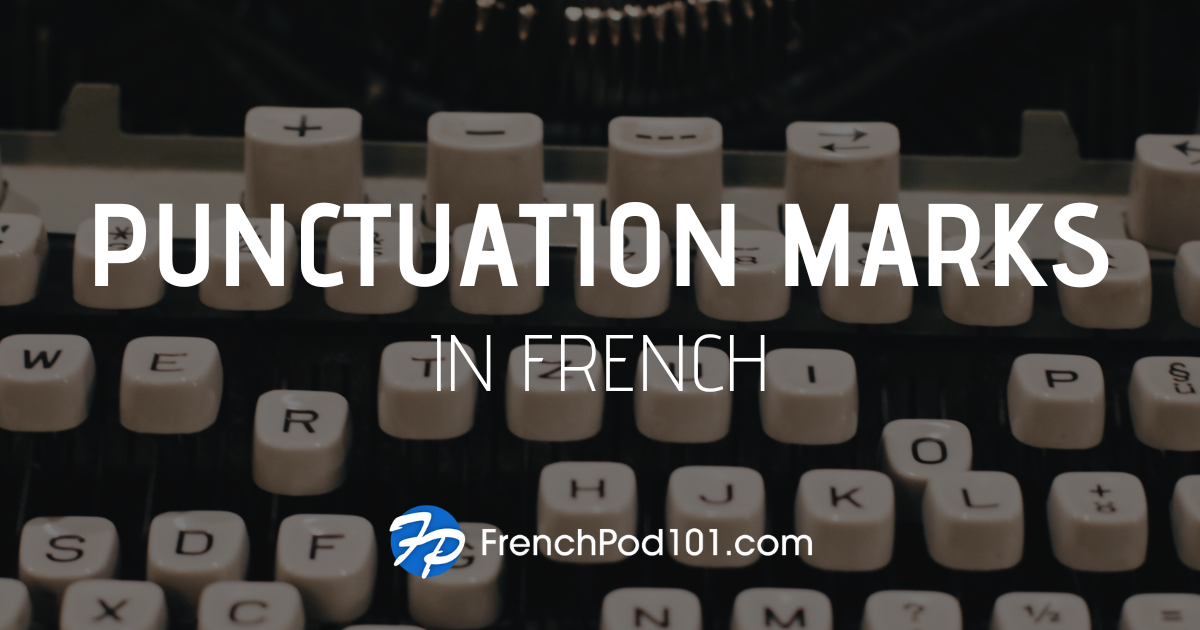Can you imagine how boring life would be without adjectives? You could never describe what you like or what you want, and giving an opinion on anything would be as bland and binary as clicking a “Like” button.
You probably already know several French adjectives and are aware of their importance. French adjective placement isn’t obvious, but it’s not rocket science either. As soon as you get familiar with the irregular adjectives list and how to handle their feminine and plural forms, they’ll unveil their secrets to you.
In this article, I’ll explain everything you need to know about how to use and adapt adjectives to your needs. Then, I’ll give you the ultimate list of the 100 most common and useful French adjectives. Not only will they allow you to describe things, people, and situations more accurately, but they will also give more color and texture to your speech.
Table of Contents
- How to Use Adjectives in French
- French Adjectives to Know for Evaluating
- French Adjectives of Size and Shape
- Key French Adjectives to Describe Physical Qualities
- Adjectives in French for Ordering
- French Adjectives for Comparing Things
- French Adjectives to Describe Condition
- French Adjectives to Describe People
- French Adjectives to Describe Situations
- Describing the Colors in French
- Describing Food in French
- How FrenchPod101 Can Help You Learn More French
1. How to Use Adjectives in French
1- Before or After: Where do French Adjectives Go?
How do French adjectives work? Where do they go?
The majority of French adjectives need to be placed AFTER the noun they describe.
For example:
- Un truc bizarre
“A weird thing” - Une science exacte
“An exact science” - Une table ronde
“A round table” - Un ciel bleu
“A blue sky”
However, some of the most common French adjectives come BEFORE the noun.
- Une jolie fille
“A pretty girl” - Une belle journée
“A beautiful day” - Un grand voyage
“A long travel” - Un nouveau monde
“A new world”
In our French adjectives list, these will be marked in purple.
A small number of adjectives have a different meaning depending on whether they’re placed before or after.
- Un ancien hôpital
“A former hospital” - Un hôpital ancien
“An ancient hospital”
Finally, some marginal adjectives must be placed before or after the noun depending on the noun itself.
- Des cheveux courts
“Short hair” - Une courte pause
“A short break” - L’année prochaine
“Next year” - La prochaine fois
“Next time”
2- Masculine or Feminine
Most French adjectives have different feminine and masculine forms.
Both will be written in the list, as follows: Masculine – Feminine
- Petit – Petite
“Small” - Fin – Fine
“Thin”
When the masculine and feminine forms are identical, only one form will be shown.
- Bizarre
“Strange” - Facile
“Easy”
3- Plural or Invariable
Most of the essential French adjectives have a different spelling in plural form. They simply take a final -s.
- Petits – Petites
Des petites maisons (Small houses) - Bizarres
Des animaux bizarres. (Strange animals)
When a singular adjective ends with a -s or an -x, it doesn’t change in plural form:
- Un animal heureux (A happy animal)
- Des animaux heureux (Happy animals)
- Un mur épais (A thick wall)
- Des murs épais (Thick walls)
Deux souris heureuses (“Two happy mice” )
-
- → Find more adjectives in our
-
- on
2. French Adjectives to Know for Evaluating
Masculine – Feminine
| Bon – Bonne
1. “Good” 2. “Right,” “Correct” |
1. J’ai un bon niveau. “I have a good level.”
2. J’attends le bon moment. |
| Mauvais – Mauvaise
1. “Bad” 2. “Wrong,” “Incorrect” |
1. C’est un très mauvais film. “This is a very bad movie.”
2. Tu as pris le mauvais tournant. |
| Génial – Géniale “Awesome” |
C’est génial de te rencontrer ! “It’s awesome to meet you!” |
| Horrible “Horrible” |
Vous devez brûler cette horrible chose. “You have to burn this horrible thing.” |
| Bizarre “Weird,” “Strange” |
L’ornithorynque est un animal très bizarre. “The platypus is a really weird animal.” |
The word “bizarre” is also present in the English language with a similar meaning, but it wasn’t imported from French. Was it originally Basque, Spanish, or Portuguese? Its bizarre etymology is still debated and mysterious.
| Facile “Easy” |
Plus facile à dire qu’à faire. “Easier said than done.” |
Here is another way to use facile in a familiar context:
Il doit peser facile 200 kg !
“He’s got to be 200 kilos, easy!”
| Difficile “Difficult,” “Hard” |
C’est une situation difficile. “It is a difficult situation.” |
| Possible “Possible” |
Avec elle, tout est possible. “With her, anything is possible.” |
| Impossible “Impossible” |
Il est impossible de survivre à une telle chute. “It’s impossible to survive such a fall.” |
Impossible n’est pas Français
“There is nothing impossible for the French,” or literally “Impossible is not French.”
This is a famous quote attributed to Napoléon. It can be used as a mantra when we have to do something so difficult it borders on impossible.
| Simple “Simple” |
Une histoire simple mais émouvante. “A simple yet moving story.” |
| Compliqué – Compliquée “Complicated” |
On est pas vraiment ensemble…c’est compliqué. “We’re not really together…it’s complicated.” |
| Cher – Chère “Expensive” |
C’est beaucoup trop cher pour ce que c’est ! “This is way too expensive for what it’s worth!” |
This word has nothing to do with American singer and Goddess of Pop, Cher.
Il fait beau ! (“The weather is good!” )
-
- → To practice with adjectives about the weather, make sure to visit our vocabulary list about
-
- . It’s freely available on
- .
3. French Adjectives of Size and Shape
| Grand – Grande
1. “Large,” “Big” 2. “Tall” 3. “Great,” “Major” |
1. Elle a un grand jardin. “She has a big garden.”
2. J’ai l’air plus grande avec mes talons. 3. Blade Runner est un grand film de science-fiction. |
Do not confuse Grand with its English homonym “Grand.”
In English, “grand” means “impressive,” “important,” or “large in degree.”
For example: “A grand opening,” “The Grand Canyon,” or “This palace is very grand.”
| Gros – Grosse
1. “Big” 2. “Fat” |
1. J’aime les grosses voitures. “I love big cars.”
2. Il est tellement gros qu’il ne voit plus ses pieds. |
| Petit – Petite
1. “Small,” “Little” 2. “Little,” “A kid” |
1. Ma copine aime les petits chats. “My girlfriend loves small cats.”
2. Quand j’étais petit, j’allais pêcher avec mon père. |
| Epais – Epaisse “Thick” |
Une épaisse nappe de brume. “A thick cloud of mist.” |
| Fin – Fine “Thin” |
Une fine couche de givre. “A thin layer of frost.” |
You should not confuse French homonyms fin (“thin” ) and la fin (“the end” ).
| Proche “Near” |
La fin est proche ! “The end is near!” |
| Loin “Far” |
J’habite loin du centre-ville. “I live far from the city center.” |
| Long – Longue “Long” |
Ca va être une longue journée. “It’s going to be a long day.” |
| Court – Courte “Short” |
Il a les cheveux courts. “He has short hair.” |
| Etroit – Etroite “Narrow,” “Tight” |
Le sentier est de plus en plus étroit. “The trail is getting narrower and narrower.” |
| Large
1. “Wide,” “Broad” 2. “Extensive,” “Large” |
1. Cette route n’est pas assez large pour deux voitures. “This road is not wide enough for two cars.”
2. Ce parc offre un large choix d’activités. |
As tricky as it may sound, the primary meaning of large is not “large,” but “wide.”
However, in some specific cases, it can also be used for “large.”
Grand et petit (“Big and small” )
4. Key French Adjectives to Describe Physical Qualities
| Doux – Douce “Soft,” “Smooth,” “Gentle” |
Elle a la peau très douce. “She has very soft skin.” |
| Dur – Dure
1. “Solid,” “Hard” 2. “Difficult,” “Tough” |
1. Demain, le béton aura séché et sera dur. “Tomorrow, the concrete will be dry and hard.”
2. C’est tellement dur de se lever le matin. |
| Plein – Pleine “Full” |
Est-ce que le verre est à moitié plein ? “Is the glass half-full?” |
| Vide “Empty” |
Non, le verre est à moitié vide. “No, the glass is half-empty.” |
| Léger – Légère
1. “Light” 2. “Minor,” “Mild,” “Slight” |
1. Une robe légère et confortable. “A light and comfortable dress.”
2. Nous avons juste un léger problème. |
| Lourd – Lourde
1. “Heavy” 2. “Annoying” [Familiar] |
1. C’est un instrument très lourd. “It is a heavy instrument.”
2. T’es lourd, avec tes blagues débiles. |
| Rapide “Fast,” “Quick” |
Rapide comme l’éclair ! “Fast as lightning!” |
| Lent – Lente “Slow,” “Sluggish” |
Elle est lente mais minutieuse. “She’s slow but thorough.” |
| Chaud – Chaude “Hot,” “Warm” |
Je préfère me doucher à l’eau chaude. “I prefer to shower with warm water.” |
Wait, how can chaud mean both “hot” and “warm?”
In English, “hot” often has a connotation of “too hot.”
Chaud doesn’t have this connotation. It can be used for “warm”:
Ce manteau me garde bien au chaud. (“This coat keeps me nice and warm.” )
And for “hot”:
Il fait tellement chaud ici, je suis en sueur. (“It’s so hot here, I’m sweating.” )
Then, we have another word for when it gets cooler: Tiède (“lukewarm,” “tepid” ):
Je lave mon linge à l’eau tiède. (“I wash my clothes with lukewarm water.” )
| Froid – Froide “Cold” |
Gardons la tête froide. “Let’s keep our heads cool.” |
| Sec – Sèche “Dry” |
L’apéro idéal ? Saucisse sèche et rosé. “The perfect apéritif? Dry sausage and rosé wine.” |
| Humide “Wet,” “Moist,” “Humid” |
L’herbe est encore un peu humide. “The grass is still a bit wet.” |
| Fragile “Fragile,” “Delicate” |
Attention, ce vase est très fragile. “Be careful, this vase is very fragile.” |
Attention : Fragile (“Warning: Fragile” )
-
- → Don’t miss our free vocabulary list of the
- and how to pronounce them!
5. Adjectives in French for Ordering
| Premier – Première “First” |
C’est ma première fois. “It’s my first time.” |
| Dernier – Dernière
1. “Last,” “Final” 2. “Latest” |
1. Il est le dernier de son espèce. “He’s the last of his kind.”
2. Voici les dernières nouvelles. |
| Second – Seconde “Second” |
La seconde guerre mondiale. “The Second World War.” |
| Deuxième “Second” |
Le deuxième tireur se tenait juste ici. “The second shooter was standing right here.” |
Should you use Second or Deuxième?
There used to be some vague traditional reasons to use one over the other, but even the “Académie Française” (the official patron for the French language) stated that there’s no difference anymore.
All you need to know is that second sounds slightly more sophisticated than deuxième.
| Prochain – Prochaine “Next” |
A quelle heure est le prochain train ? “At what time is the next train?” |
| Précédent – Précédente “Previous” |
La solution précédente était bien meilleure. “The previous solution was much better.” |
| Avant-dernier – Avant-dernière “Penultimate,” “Second to last” |
L’avant-dernier niveau est le plus difficile. “The second to last level is the most difficult.” |
Le premier janvier (“January the first” )
6. French Adjectives for Comparing Things
| Même “Same” |
C’est toujours la même histoire. “It’s always the same story.” |
| Autre “Other” |
Une autre victime a été découverte. “Another victim has been found.” |
| Différent – Différente “Different” |
Nous vivons une époque différente. “We’re living in different times.” |
| Seul – Seule
1. “Only” 2. “Alone,” “Lonely” |
1. C’est la seule solution. “This is the only solution.”
2. Tu ne te sens jamais seul avec un chat. |
| Meilleur – Meilleure
1. “Best” 2. “Better” |
1. C’est le meilleur jeu de 2019. “This is the best game of 2019.”
2. Il est meilleur que le précédent épisode. |
Should you use Meilleur or Mieux when both mean “Better?”
In most cases, you can use meilleur when comparing nouns, and mieux when modifying verbs:
Je chante mieux que toi.
“I sing better than you.”
Je suis un meilleur chanteur.
“I’m a better singer.”
| Pire “Worst” |
C’est le pire jour de ma vie. “This is the worst day of my life.” |
| Unique “Unique,” “Only,” “Single” |
Il est fils unique. “He’s an only child.” |
| Spécial – Spéciale “Special” |
Voici l’agent spécial Fox Mulder. “Here is special agent Fox Mulder.” |
| Particulier – Particulière
1. “Specific,” “Particular” 2. “Private,” “Special” |
1. Roger a un sens de l’humour assez particulier. “Roger has a rather particular sense of humor.”
2. Il est l’assistant particulier de la présidente. |
Tu es unique (“You are unique” )
7. French Adjectives to Describe Condition
| Nouveau / Nouvel – Nouvelle “New” |
J’adore ta nouvelle robe ! “I love your new dress!” |
Nouveau or Nouvel?
If the next word is singular and starts with a vowel sound, you should use nouvel.
For example: Le nouvel an. (“New year.” )
Otherwise, you should use Nouveau.
| Neuf – Neuve “Brand-new” |
Cette robe est neuve. “This dress is brand-new.” |
| Pauvre “Poor” |
Il est si pauvre qu’il vit dans la rue. “He’s so poor he’s living in the street.” |
| Riche
1. “Wealthy” 2. “Diverse,” “Abundant” |
1. Le Koweït est un pays riche. “Kuwait is a wealthy country.”
2. Les Galapagos ont une faune incroyablement riche. |
| Propre
1. “Clean” 2. “Own,” “Personal” |
1. Des vêtements propres. “Clean clothes.”
2. Mes propres vêtements. |
| Sale “Dirty” |
Je ne veux pas d’argent sale. “I don’t want dirty money.” |
| Dégueulasse [Familiar] “Disgusting,” “Nasty” |
Ce fromage est vraiment dégueulasse. “This cheese is really disgusting.” |
| Cassé – Cassée “Broken” |
J’ai une jambe cassée. “I have a broken leg.” |
J’ai les mains sales. (“I have dirty hands.” )
8. French Adjectives to Describe People
1- Describing Physical Traits
| Jeune “Young” |
C’est un jeune artiste prometteur. “He’s a young promising artist.” |
| Vieux / Vieil – Vieille “Old” |
Un vieux guitariste. “An old guitar player.” |
Vieux or Vieil?
If the next word is singular and starts with a vowel sound, you should use vieil.
For example: Un vieil accordéoniste. (“An old accordionist.” )
Otherwise, you should use vieux.
| Beau / Bel – Belle “Handsome” – “Beautiful” |
Elle a de belles mains. “She has beautiful hands.” |
Beau or Bel?
If the next word is singular and starts with a vowel sound, you should use bel.
For example: Un bel homme. (“A handsome man.” )
Otherwise, you should use beau.
| Moche “Ugly” |
Il est pas si moche que ça. “He’s not that ugly.” |
| Fort – Forte
1. “Strong” 2. “High,” “Important” |
1. C’est pratique d’avoir un homme fort à la maison. “It’s handy to have a strong man at home.”
2. Une forte augmentation |
| Faible
1. “Weak” 2. “Low,” “Small” |
1. Ils sont faibles et pitoyables. “They are weak and pitiful.”
2. Un faible pourcentage |
| Mince “Slim,” “Thin” |
Elle est grande et mince. “She’s tall and slim.” |
| Mignon – Mignonne “Cute,” “Sweet” |
Tu as vu le serveur ? Il est mignon. “Did you see the waiter? He’s cute.” |
Un vieil homme (“An old man” )
2- French Adjectives About Personality & Attitude
| Gentil – Gentille “Nice,” “Kind” |
Elle a rencontré un gentil garçon. “She met a nice guy.” |
| Méchant – Méchante “Mean,” “Wicked” |
A la fin, il combat le méchant sorcier. “At the end, he’s fighting the evil sorcerer.” |
| Con – Conne [Familiar]
1. “Dumb” 2. “Jerk” |
1. J’ai l’air con avec cette chemise ? “Do I look dumb with this shirt?”
2. Oublie-le, c’est un sale con. |
| Drôle (de)
1. “Fun,” “Funny” 2. “Strange” |
1. Elle est drôle et insouciante. “She’s funny and carefree.”
2. Tu fais une drôle de tête. Ca va ? |
Why is it drôle de tête?
This irregular structure is specific to the second meaning of drôle. It takes an additional de between the adjective and the noun.
- Un drôle de type (“A strange dude” )
- Une drôle d’histoire (“A strange story” )
| Fou – Folle “Crazy,” “Mad” |
Un savant fou “A mad scientist” |
| Sympa “Nice” |
Il est super sympa ! “He’s super nice!” |
Sympa is short for sympathique.
This slightly more casual version has become much more common than the original word.
- → You’ll find many more words to describe your friends’ personalities in our free vocabulary list on Personality Traits, with examples and audio recordings.
3- French Adjectives of Emotion & Mood
| Heureux – Heureuse “Happy” |
Un imbécile heureux “A happy idiot” |
| Triste “Sad” |
Un clown triste “A sad clown” |
| Calme “Calm” |
Restez calme et tout ira bien. “Stay calm and everything is gonna be alright.” |
| Excité – Excitée “Excited” |
Je suis tellement excité de les rencontrer ! “I’m so excited to meet them!” |
| Content – Contente “Glad” |
Je suis contente de te voir. “I’m glad to see you.” |
| Malade “Sick,” “Ill” |
Sa fille est très malade. “His daughter is very ill.” |
| Mort – Morte “Dead” |
Il est mort par strangulation. “He was strangled to death.” |
Restez calme, restez zen (“Stay calm, stay zen” )
9. French Adjectives to Describe Situations
| Public – Publique “Public” |
Une affaire de santé publique “A matter of public health” |
| Privé – Privée “Private” |
Un club privé “A private club” |
| Important – Importante “Important” |
Une affaire très importante “A very important matter” |
| Dangereux – Dangereuse “Dangerous” |
Tu joues un jeu dangereux. “You’re playing a dangerous game.” |
| Ennuyeux – Ennuyeuse
1. “Boring” 2. “Inconvenient,” “Annoying” |
1. Je vous épargne les détails ennuyeux. “I’ll spare you the boring details.”
2. Ca devient ennuyeux, ces pannes de courant. |
10. Describing the Colors in French
| Noir – Noire “Black” |
Le cygne noir “The black swan” |
| Blanc – Blanche “White” |
Un drapeau blanc “A white flag” |
| Bleu – Bleue “Blue” |
Un ciel bleu “A blue sky” |
| Rouge “Red” |
La sorcière rouge “The red witch” |
| Vert – Verte “Green” |
Le frelon vert “The green hornet” |
| Jaune “Yellow” |
La fièvre jaune “The yellow fever” |
Le vin rouge et le vin blanc (“Red wine and white wine” )
-
- → Check out our free vocabulary lists on
-
- and
-
- , on
11. Describing Food in French
| Sucré – Sucrée “Sweet,” “Sweetened” |
Je préfère un petit déjeuner sucré. “I prefer a sweet breakfast.” |
| Salé – Salée “Salty,” “Salted” |
Un demi-litre d’eau salée “Half a liter of salted water” |
| Epicé – Epicée “Spicy,” “Spiced” |
La cuisine Indienne est très épicée. “Indian cuisine is very spicy.” |
| Fade “Bland,” “Tasteless” |
C’est un peu fade sans la cannelle. “It’s a bit bland without the canella.” |
| Gras – Grasse “Fat” |
C’est trop gras pour mon régime. “This is too fat for my diet.” |
| Délicieux – Délicieuse “Delicious” |
Merci pour ce délicieux repas ! “Thank you for this delicious meal!” |
| Ecoeurant “Sickening” |
Il y a tellement de sucre que c’est un peu écoeurant. “There is so much sugar that it’s a bit sickening.” |
C’est délicieux à en pleurer ! (“It’s so delicious I would cry!” )
-
- → Everything you need from the kitchen is in our vocabulary list for
- , with audio recordings to practice your pronunciation!
12. How FrenchPod101 Can Help You Learn More French
In this guide to French adjectives, you’ve learned everything there is to know on the topic including French adjectives position and agreement. You’ve also reviewed an extensive list of the most common and useful ones.
Did we forget any important French adjectives? Do you feel ready to describe everything around you and talk about what you like and want, using what you’ve learned today?
A good way to practice with adjectives is to start with the basics and slowly add more complexity to your sentences:
- Une voiture rouge. (“A red car” )
- Une voiture rouge et sale. (“A red and dirty car” )
- Une voiture rouge et blanche, très belle mais un peu sale. (“A red and white car, very beautiful but a bit dirty” )
Make sure to explore FrenchPod101, as it has plenty of free resources for you to practice your grammar and learn new words. The vocabulary lists are also a great way to revise the words and learn their pronunciation.
Remember that you can also use our premium service, MyTeacher, to get personal one-on-one coaching. Practice using adjectives in French with your private teacher so they can give you personalized feedback and advice, and help you with the pronunciation.
About the Author: Born and bred in the rainy north of France, Cyril Danon has been bouncing off various jobs before he left everything behind to wander around the wonders of the World. Now, after quenching his wanderlust for the last few years, he’s eager to share his passion for languages.




